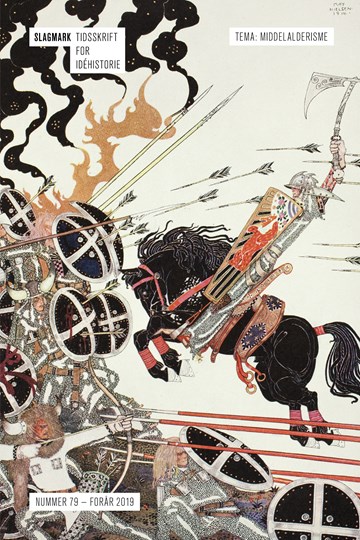Modernitetens sine qua non – Islamisk middelalderfilosofi og moderne reformisme
DOI:
https://doi.org/10.7146/slagmark.vi79.130729Nøgleord:
Islam, modernity, Islamic philosophy, medievalism, easternismResumé
The trope that modern Europe , emerging from its Dark Ages, is indebted to the Islamic Middle Ages is widespread. The article traces this ‘Islamic medievalism’ back to Muslim discourses of the late 19th and early 20th century. Focusing on the Egyptian intellectual Muhammad Lutfi Jum’a’s (1886-1953) portrayal of medieval Islam and its philosophers as well as his mobilization of these within a reformist ideology, it argues the following: Firstly, that Jum’a’s medievalism, perceiving medieval Islamic philosophy as the sine qua non of European modernity, is indebted to readings of European orientalist histories of philosophy, demonstrating how medievalism emerged from a global discursive formation. Secondly, that Jum’a mobilized the medievalist argument and the philosophers to argue for the possibility of an alternative counter-modern Muslim and Eastern modernity where the materialist and disenchanting tendencies of European modernity are negated – a vision he shared with other so-called Easternist thinkers, who conceived of Muslim countries as belonging to a broader East ranging from North Africa to Japan.
Downloads
Publiceret
Citation/Eksport
Nummer
Sektion
Licens
Ophavsretten til artiklerne i Slagmark deles mellem forfatter og Forlaget Slagmark.
Artikler og tekstmateriale publiceret i Slagmark må citeres, downloades og videresendes for ikke-kommerciel brug, under forudsætning af normal akademisk reference til forfatter(e) samt tidsskrift, årgang, nummer og sider.
Brug og distribution af tekstmateriale både i form af papirkopier og elektroniske kopier, til undervisningsbrug på uddannelsesinstitutioner og intern brug er tilladt efter aftale med Copydan Tekst & Node. Brugen skal ske inden for aftalens rammer.
Artikler og tekster må kun genudgives med eksplicit tilladelse fra forfatter(e) og tidsskriftet med en anerkendelse af værkets første publicering i nærværende tidsskrift.





